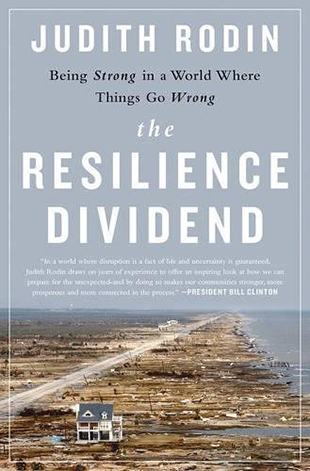In a pivotal scene in the extraordinary film Beasts of the Southern Wild, a school teacher in a remote Bayou community warns her young students that dangerous and difficult days are on the way. She counsels them: "You all better learn to survive."
They are not the only ones. Many people are facing perilous time due to financial loss, unemployment, foreclosure, and homelessness. Due to global warming, weather disasters are on the rise with floods, hurricanes, and droughts. The health care system is seriously challenged and has broken down in some areas. It's no longer a question of how well people are doing; it's a matter of whether they are to be able to survive at all.
In the face of these dangers, it is not only individuals who must develop resiliency but cities, governments, institutions, organizations, and businesses as well. Judith Rodin, president of the Rockefeller Foundation since 2005, has written a timely book on the need for any entity to handle shocks, stresses and surprises. Resilience enables us to bounce back after learning from our mistakes. She outlines five characteristics of this capacity: being aware, diverse, integrated, self-regulating, and adaptive.
Winston Churchill hit the nail on the head when he said: "Never let a good crisis go to waste." Rodin proves him right as she explores some hopeful collaborations of individuals, corporations, and organizations. She gives the examples of the turnaround of Medellin, Columbia, and the exploration in Kenya of the bottom-up ways of dealing with climate change. Since revitalization is the result of resiliency, both individuals and communities can benefit by getting to work right now.
